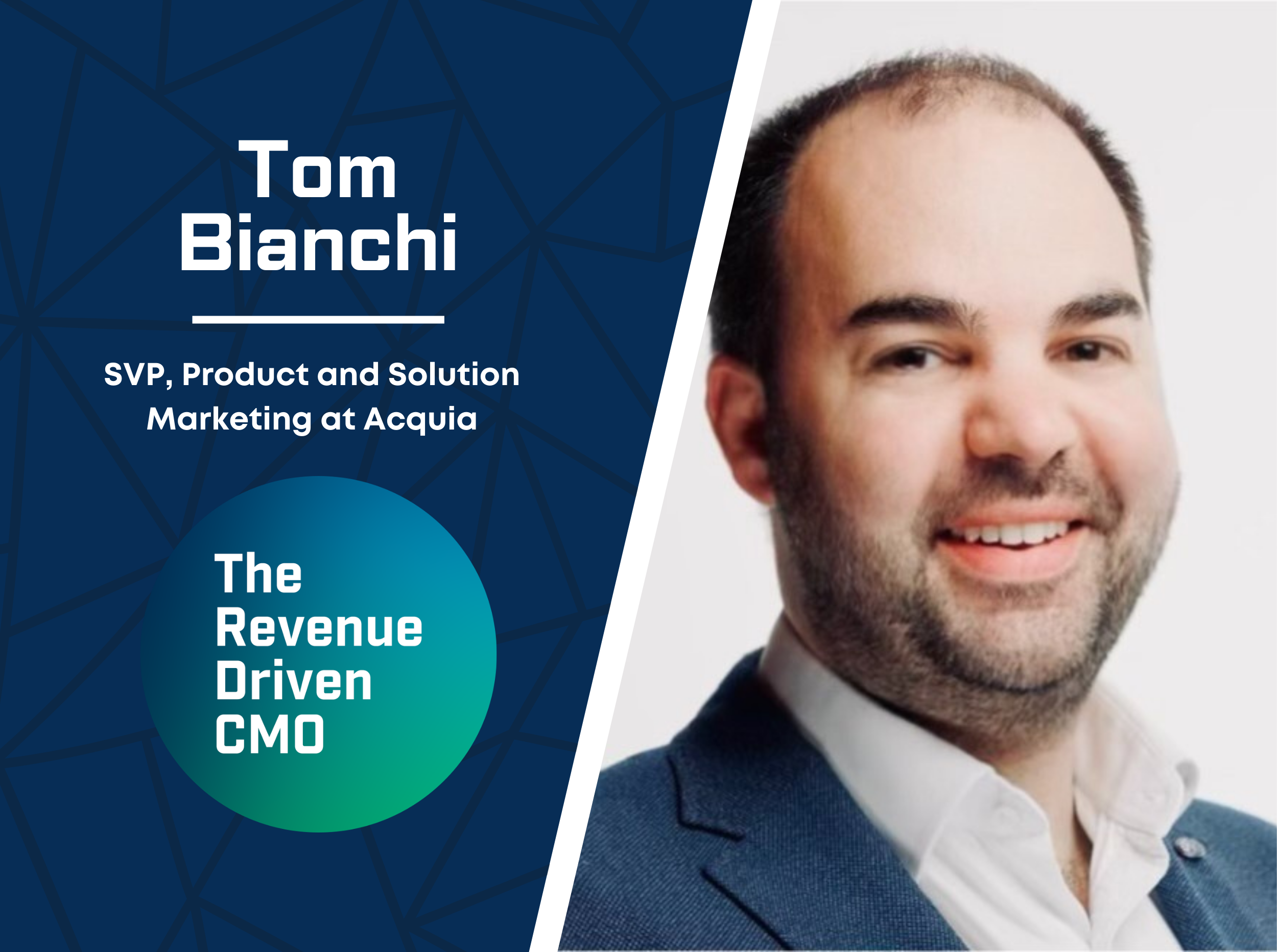
How to listen & learn from your customers with a podcast
When was the last time you sat down for an hour to talk to a customer without any distractions?
Probably never. And that’s a shame.
Customers are a wealth of information. They can tell you how to sell to them, where to go with your product roadmap, and what big trends they’re watching.
Book a 30 minute call
Reserve 30 minutes with a strategist and get 30 hours worth of value.
So how do you get them to give you this information without feeling like you’re making a selfish ask?
Podcasting.
Podcasting is a forcing function for uninterrupted conversations. No one is on their phone, not paying attention — they’re afraid they’ll get called out. Podcasting makes everyone focus on each other. And that’s when you get the best insights.
Below, we share some insights from Casey Cheshire, Founder & Podcast Architect at Ringmaster Conversational Marketing. Casey joined our podcast to share his insights on the power of a podcast as a customer listening tool & revenue generating engine.
Casey shared why listening and learning from your customers is so important, why podcasts are the most effective way to do it, and the myriad of benefits you get from starting one.
The secret to marketing success: listening
In marketing, we’re always getting creative. We’re trying out new ad copy, inventing words and phrases. And we give each other props for being clever.
But what is the purpose of that? Maybe you’re wowing other marketers, but you should really be wowing your ideal customers.
Instead of inventing the words and phrases that will drive action, listen for them. The best way to do that is to invite current customers and prospects on a podcast. Ask them about their successes, their challenges, and what keeps them up at night.
Find out what those challenges are and how you can address them with your service, solution, or software.
Listen to the terminology they use. For example, do they call something a “customer service mechanism,” or do they call it a “revenue mechanism for growth?” Maybe they just use plain terms, saying their goal is to hit their rev number.
Go deep. Explore various topics and discover what your customers think and how they speak about it. You’ll seem like a customer whisperer, but you’re just taking what someone already told you and pitching your product or service to other similar people in the same way.
10 concrete benefits to podcasting
1. Anybody can start a podcast
Sometimes people think guesting and hosting are the same thing and avoid starting one because, in their mind, they’re not a talker.
But the guest does most of the talking. As a host, your job is to ask good questions and then shut up. So you don’t need to be like the most extroverted person on the planet. And you can think about a podcast as just sitting down with someone who you want to get to know better.
Plus, there are a number of benefits.
2. Podcasting does the customer research for you
A podcast gets you much more in connection with your customers’:
- Pain points
- Trigger points to start a search for a product or service
- Buying process and mindset
You can’t get this from a Google search. You need a conversation.
Typically, the best information comes from follow-up questions. Asking what happened before a big decision or how a decision affected something else downstream is where you’ll find the gold.
3. Podcasting solves the “case study problem”
Asking a customer to do a case study isn’t a small favor. They have to take time out of their busy day to help you, which is not mutually beneficial.
But getting someone on your show isn’t a selfish ask; it positions them as a thought leader in their industry. It gives them the spotlight to shine. And you benefit from hearing their take.
4. Podcasting builds relationships
People will surprise you. Maybe you have a CMO on your podcast who lives close by. If you had a good rapport on the episode, grab a coffee with her once in a while. Casey talks about how an interviewee would come up to New Hampshire to hike. Since he lives close by, she invited him to join.
Podcasting allows you to build relationships with your customers beyond their nine-to-five, helping you understand your ICP at an even deeper level.
5. Podcasting generates leads
You can make sales directly through your podcast.
Say you’re chatting with a CMO who wants to migrate from one platform to another. What if you happen to work for the new platform they are interested in? Or you could help with the implementation? That’s a warm lead right there.
Now, you won’t get them right away, but warm leads eventually pop up — especially if you pick the right people to interview.
6. Podcasting creates content
Podcasting gives you content for days.
Casey explains that after a year of consistent podcasting, he had enough content to write a whole book. He cited all the podcast episodes in his book, automatically getting 300 experts excited to promote it.
Think about how you can turn months into certain themes and use the learnings from your guests in blogs, social media content, landing pages, ebooks, and more.
Another option is to use podcasts as a source file for ChatGPT. Your episodes have the smartest people on them giving their expert advice, which is an unbeatable jumping-off point for content creation.
7. Podcasting is cost-effective
Instead of spending $200k on an event and hoping your ideal customer shows up, invite them on your podcast.
Guests will publicize your podcast on their LinkedIn, helping you gain more listeners who are guaranteed to be in your ICP. And with the cash you have left over, you can really put the icing on the cake.
For example, Casey sends each of his guests a little plaque with their best quote on it. You could also ask your team to prepare highlight reels for social sharing. Touches like that make you extra memorable.
8. Podcasts help you learn
Listening to the pioneers in your field can help you learn a lot, not just about your ideal customer but about an industry in general.
Guests give their opinion on trends or surface new things that you hadn’t heard before that can be invaluable from a positioning or even product development standpoint.
9. Podcasts aren’t as saturated as you think
There are over 200 million podcasts out there, which usually stops people from starting one. But that’s nothing when you compare that to the number of blogs out there (in the billions!).
And really, you shouldn’t care about whether your podcast explodes on the charts. You’re not using it for vanity metrics; you’re using it for customer listening, relationship building, and learning.
When you’re creating great content, the impressions and reach come naturally. Combine killer content with built-in promotion from your guests, and voila, you’ve got a bunch of new followers.
10. Podcasts are flexible
Podcasts are whatever you make them.
Companies are getting creative, starting podcasts dedicated to each of their main products to reach each slightly different ICP. Niching down and refining your content can get you a very specific type of listener. And it can teach you a lot about how to launch products in the future.
Others make podcasts part of their community strategy, uniting their audience around a specific topic or mission. People crave connection, and podcasts give your community something to bond over and rally around.
Make podcasting your secret sauce
Podcasting is the future calling card. Podcasts showcase real people, with real personalities, with real insights — and you can use them to your company’s advantage. The people that listen to you and your episodes week after week learn from you and your guests, and more importantly, they start trusting you, laying the perfect foundation for a sale.
If you’re still not convinced, we’ll leave you with an example that demonstrates the power of podcasting’s network effect.
Casey shared that he interviewed a Head of Sales and had a lively, genuine conversation about wanting customers to succeed and how that can translate to marketing and sales. The guest loved how it turned out so much that he now shares the episode with every single prospect.
It’s a great way for him to highlight his approach and how it’s different from his peers. That episode alone got Casey hundreds of thousands of listens.
The reality is that you never know how your guest might incorporate your episode into their own marketing strategy. And then your brand, your message, and you yourself get in front of all these people you never thought you’d meet — all because you were the one who initiated the conversation.
Listen to Casey Cheshire’s podcast, Hard Corps Marketing, and pick up a copy of his book, Marketing Automation Unleashed: The Strategic Path for B2B Growth.
For more incredible tips from digital marketing leaders like Casey, tune into Performance Marketing Insiders, and join us at one of our monthly Growth Clinics.
Most newsletters suck...
So while we technically have to call this a daily newsletter so people know what it is, it's anything but.
You won't find any 'industry standards' or 'guru best practices' here - only the real stuff that actually moves the needle.







